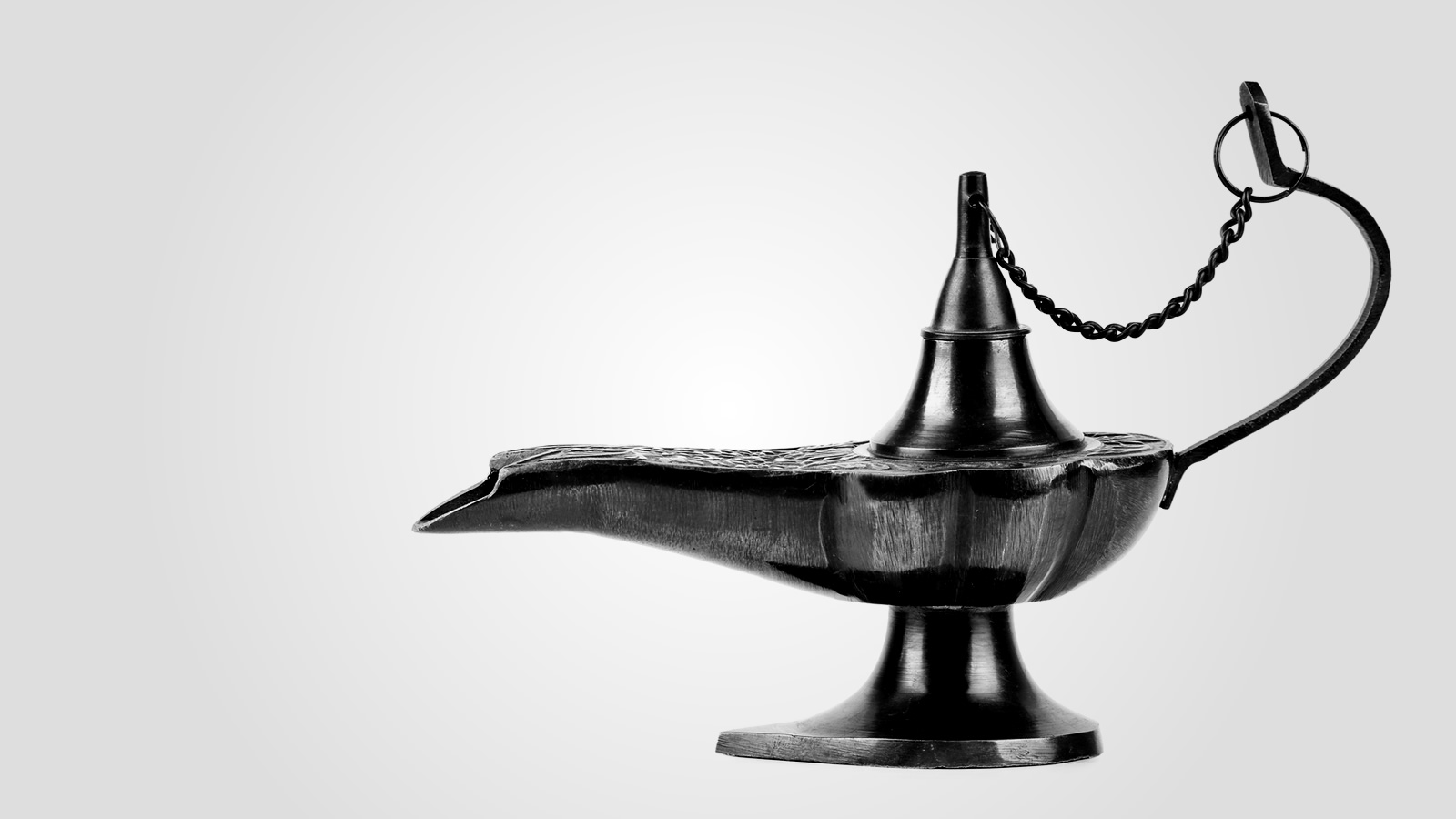The new comedy from playwright Andrew Roach bills itself as ‘mystical’, ‘hilarious’ and ‘funny’ (doesn’t the second imply the third?), but perhaps all three could be replaced by another adjective—earnest. Ras Genie, which opened June 12th at the Pantry Playhouse, is an earnest comedy—built from drywall and dedication, the actors, sweating under hot floodlights, do their best to make the show work. The tragedy is that it doesn’t.
Ras Genie has its laughs, including a clergyman (Rowan Byfield, treading worn ground) whose liturgical literature draws from scriptures old and new—i.e., the gospel according to Matthew, Mark, Luke and Beenie Man. It has a deliciously absurd idea at its core, swirling two Abrahamic faiths together for its title character, a Rastafarian jinni. And the cast tackles the material with gusto—Carlene Taylor, as exotic dancer Wingie, and Peter Heslop, as the eponymous Ras Genie, both deliver spirited performances.
But comic absurdity and attitude cannot paper over structural flaws. Ras Genie is unsure of its protagonist. More time is spent with Wingie and her desire to find love, financial security, or a way out of the ghetto. The title, curtain call and expositional passages, however, favour her protector, the Genie, who swings improbably between wanting to return to his bottle and itching to be free.
Traditional Greek theatre sometimes climaxed with a deus ex machina—a god who appeared, a little too conveniently, to solve unsolvable problems and untangle tangled plots. Modern audiences, paying for their entertainment, frown on such arbitrary endings. Ras Genie’s second act contains what we could call a jinni ex machina, who appears without explanation and whisks Ras Genie away. It makes you want to supply the stage with an extra bottle or two.
It’s a shame, because Andrew Roach sprinkles Ras Genie with the kind of cultural commentary emblematic of ‘roots’ plays and essential to keeping society healthy and its leaders honest. Believing he can’t return to his glass house, the Genie laments on his bad luck—he’s stuck in Jamaica, of all places, with “Bruce (Golding) and Portia (Simpson-Miller) and the sliding dollar.” Some of the characters aspire to the perceived acme of Cherry Gardens and Norbrook. And there’s the aforementioned Reverend, quoting Colossians and Capleton.
Roach also has a keen ear for the vernacular of his countrymen, and an affinity for the plight of the common man (and woman), traits shared with luminaries like Oscar Wilde and George Bernard Shaw. Wilde and Shaw, however, never left their characters without arcs and their plots without through-lines.
Given its flaws, Ras Genie feeds the idea, popular amongst the cocktail crowd (you know, the ones who live in Cherry Gardens and Norbrook), that ‘roots’ plays are a low form of entertainment. It’s hard to disagree that our marketplace is stuffed with the genre—turn to today’s Entertainment pages—or that many are mediocre. But what this country needs is more ‘roots’ plays, not less. To hell with Oscar Wilde. We need to be drowning in indigenous drama, our lives relived for us with imagination and intermission. William Shakespeare was little more than a talented hack banging out commissioned plays for the English masses, and he turned out alright.
Ras Genie lacks the makings of great art, but not because of its roots or its aspirations. Director Dahlia Harris, playwright Andrew Roach and their cohort of thespians just need to try again, keeping in mind always the importance of being earnest.
- Ras Genie
- Written by Andrew Roach
- Directed by Dahlia Harris
- Playing at The Little Little Theatre, now playing
